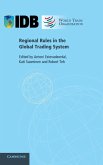The past few decades have witnessed a proliferation of economic sanctions, yet there seem to be few examples of sanctions meeting sender states' goals. Under what conditions do sanctions fail to change the behavior of so-called international "pariah states," countries who violate various international norms? This book examines the impact of economic sanctions on target states' trading relationships through social network analysis, a method that has rarely been applied to the study of sanctions. Drawing on UN Comtrade data, Trading with Pariahs: Trade Networks and the Failure of Economic Sanctions shows that the imposition of sanctions can drastically change some states' trading networks, as states either find new trading partners (in the case of North Korea) or feel the sting of the sanctions from key trading partners (like Iran). Trading networks (such as Myanmar's) remain relatively stable over time as key trading partners refuse to impose sanctions. Through the theory of weaponized interdependence, Keith A. Preble and Charmaine N. Willis argue that the success or failure of sanctions to change target states' behavior depends on who imposes the sanctions. Sanctions imposed by the "right" sender states can be successful but also cannot rely solely on policies of isolation to achieve the goals of the sanctions.
Hinweis: Dieser Artikel kann nur an eine deutsche Lieferadresse ausgeliefert werden.
Hinweis: Dieser Artikel kann nur an eine deutsche Lieferadresse ausgeliefert werden.








